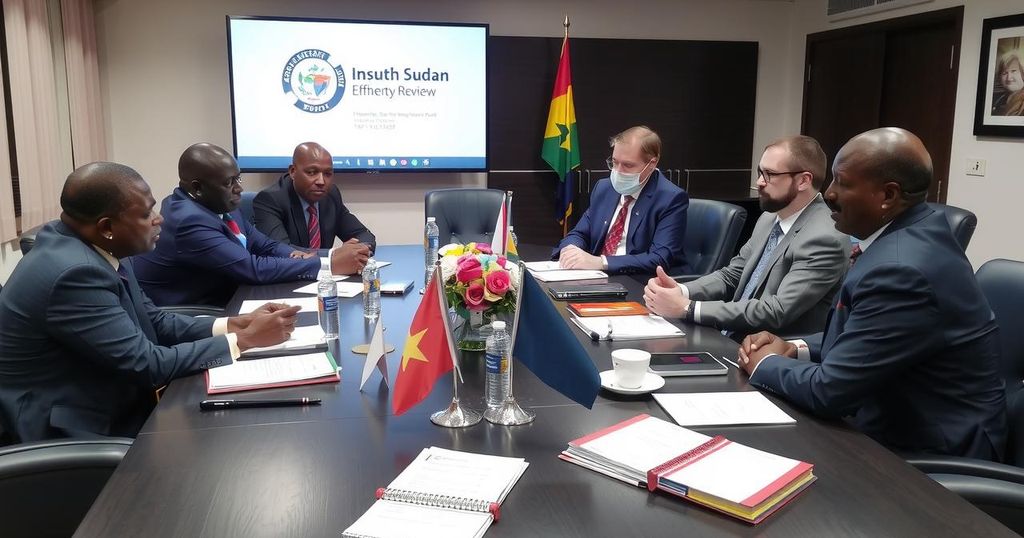South Sudan is grappling with severe economic downturns caused by the war in Sudan, leading to a stoppage of oil production and subsequent fiscal challenges. High inflation and a devalued currency are pressing issues, compounded by acute food insecurity affecting the majority of the population. The government’s postponement of elections slated for December 2024 to 2026 aims to refocus on stability amidst these crises.
The Republic of South Sudan is currently facing significant economic challenges, primarily influenced by ongoing conflicts in neighboring Sudan. The recent disruption of a crucial oil pipeline that accounts for 70 percent of South Sudan’s production has led to severe declines in economic growth, government revenue, and foreign exchange inflows. As a result, the government has struggled with high inflation, a depreciating currency on the parallel market, and constraints on budget financing. Additionally, humanitarian conditions have deteriorated, with two-thirds of the population facing acute food insecurity, further exacerbated by flooding and an influx of refugees. In light of these issues, the national unity government has recently postponed elections set for December 2024 to 2026, as part of efforts to stabilize the situation.
The economic instability in South Sudan stems from various factors, notably the direct impact of the Sudan war and pre-existing humanitarian crises. With much of the nation’s oil infrastructure reliant on cross-border access through Sudan, any disruptions in operations severely affect fiscal capacity and resources. The deteriorating security situation has not only hindered economic activities but has also complicated public financial management, leading to increased reliance on monetary financing and salary arrears. The challenges posed by this precarious situation highlight the need for systemic reforms and collaborative efforts to ensure political and economic stability.
In conclusion, South Sudan’s economic landscape remains tumultuous, primarily due to the implications of the Sudan conflict, infrastructural inadequacies, and humanitarian crises. The government’s decision to postpone elections presents both challenges and an opportunity for necessary reforms in governance and economic management. Addressing inflation, currency depreciation, and budgetary constraints will be crucial for the country’s recovery and the well-being of its citizens.
Original Source: www.imf.org






